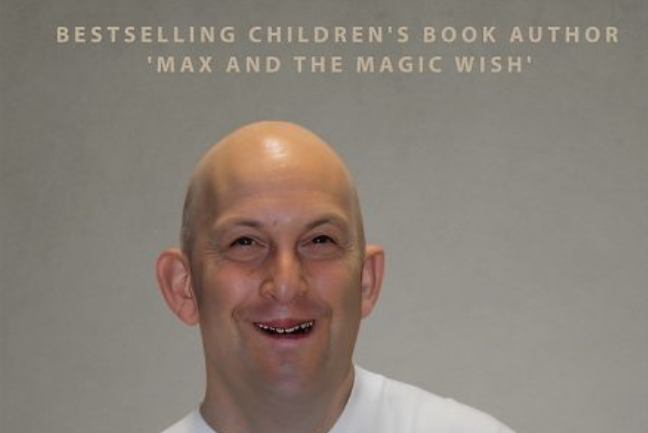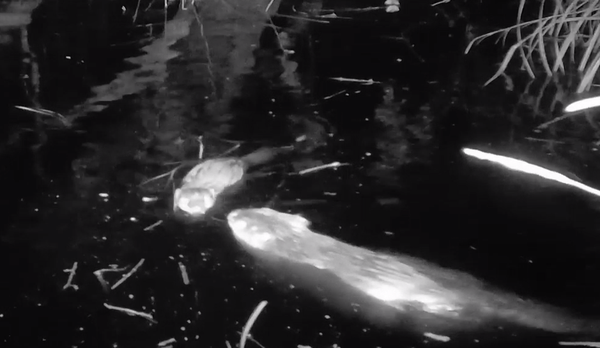Best-selling author speaks to Jill Dando News about his latest book ‘Cerebral Palsy and Me’

By Ellise Hollie Hayward, 21, Disabilities Correspondent, Jill Dando News
(Ellise Hollie Hayward is the Disabilities Correspondent for Jill Dando News and the Good News Post. She started the role after giving yet another motivational talk - this time at Priory Community School Academy in Weston-super-Mare, the school that paved the way for JIll Dando News)
Here motivational speaker and Jill Dando journalist Ellise finds the story on inspirational Gavin Clifton, a bestselling children’s book author.
“I have just written and self-published my autobiography, Cerebral Palsy and Me, about how I have lived with cerebral palsy.
“Cerebral palsy is a term used to cover several neurological conditions.
“These conditions are caused before, during, or shortly after birth as a result of injury to the brain due to any of the following reasons: limited or interrupted oxygen supply to the brain, a bleed within the baby's brain, a premature or complicated birth process, the mother catching an infection whilst pregnant, or changes in genes that affect the development of the brain.
“Sadly, in my case, there was limited oxygen to the brain during birth.
“Cerebral palsy can affect muscle control, coordination, tone, reflexes, posture, and balance.
“Often, a person with cerebral palsy will display signs of the condition. Still, the effects can vary significantly from person to person.
“I was also born with a cleft palate and a hair lip, which also developed due to further complications while growing in my mother's womb, for which I have had several correction operations on both my cleft palate and hair lip to close the gaps in the roof of my mouth and upper lip.

“I later developed epilepsy, meaning I suffered seizures until I was four. I only remember biting my tongue as I came out of my episodes and then having a numb sensation in my mouth and my tongue sore from where I had bit it.
“After that, I remember nothing else about my seizures.
“I have also written two children's books. My first children's book, Max And The Magic Wish, is a true story about disability and acceptance. This
“ book became a bestseller in 2021 after the BBC Welsh News covered my story.
“Then, my second children's book, Paddy The Polar Bear Teddy, is more of a magical adventure story about courage, wisdom and friendship.
“My autobiography, Cerebral Palsy And Me, has only recently been published. I started writing this book during the first Covid lockdown.
“It's been over two years in the making, and honestly, it has taken me through a rollercoaster of emotions. Writing an autobiography was challenging; bearing my life story and feelings for all to read was tough.
“I am fully aware of the enormity of our task of educating and raising disability awareness within our communities, and not everyone will want to listen.
“Still, if we can advocate enough to make the areas of society willing to listen and come on board with becoming allies to the disability community and help to begin to contribute to how we can make our world more accessible and inclusive for everyone, then this journey I'm on will be one that's worth taking.
“I'm also a songwriter and disability blogger. I have been collaborating and writing songs for about twenty years now and have co-written over 70 songs, which a few have been released by the likes of Phantom of the Opera star Peter Karrie and hitmaking 80s band The Korgis which you may remember from their well-known hit song Everybody's Got To Learn sometime.
“I am also a social media influencer and a blogger. I am available for children's and general book signings, public speaking, and inclusivity networking events.
“I conduct such events using augmented and alternative communication technology and aids. You can find out much more about how to book me for events by visiting my website.
“To help me communicate when people find it difficult to understand me due to also having a severe speech impediment. I use something called augmented and alternative communication.
“So what is augmented and alternative communication, Or AAC, as it's more commonly known? It is a communication method that assists or even replaces natural speech.
“Speech is essential, and it's how we primarily interact and communicate. So, the first 'A' in AAC represents augmented communication.
“Augmenting is adding to something or supplementing it. In this case, you can add something to someone's speech, such as sign language, a picture, or a letter board, to get your message across to people.
“The second 'A' in AAC represents alternative communication, meaning when you cannot speak or be understood by others, like me sometimes.
“It gets very frustrating when you can sometimes not communicate sufficiently. Trust me, I know. However, different types of AAC can be used to communicate, like unaided ones that don't require someone to use a physical aid.
“Instead, people may use sign language, facial expressions, body language, or gestures. For example, I may point to something I'm referring to or nod to get my point across.
“Then there's aided AAC, which I have used on and off over the years. Aided AAC comes in different forms. For example, some people use symbol boards or sheets, choice cards, communication books, alphabet cards, speech-generating or communication devices, or apps.
“Until now, I have used text-to-speech AAC systems using a keyboard. But you can get symbol-based AAC. This method is primarily used by people who can't read or spell and use symbols or pictures to represent words or phrases.
“Living with cerebral palsy hasn't always been easy, but it's shaped who I am. From navigating a world that wasn't always built with accessibility in mind to persevering through physical challenges, I've learned a lot along the way.
“Making society more understanding, accessible and inclusive for everyone will help catapult disability awareness to a whole new visible level.
With this, we can change societal attitudes and mindsets to become more natural and inclusive. We can achieve this by leveraging disability awareness in schools, colleges, retail, hospitality and workplaces.
“We must also encourage public spaces to foster more accessible venues and buildings.
“I know not every building out there can be easily made accessible, but where possible. I think it's in our best interests to remove barriers and red-taped policies that may stop us from making our society more accessible and inclusive.
“We also need to foster more online and social accessibility and inclusive tools necessary to make sure the likes of our blind and deaf communities can become included, such as BSL interpreters, text magnification technology and text-to-speech.
I also think that talking about and teaching disability awareness more often in our schools will help children gain more of a supporting understanding of what it's like to be disabled, breaking down barriers, stereotypes and misunderstandings surrounding the disability community, and I think with more disability and awareness being spread and taught will help us maybe become more inclusive in more ways than one.
“In Cerebral Palsy And Me, I delve into the challenges and triumphs of living with cerebral palsy, sharing stories from childhood, adolescence, and adulthood. I talk about the impact that my disability has had on my family life, social life, career, and overall outlook on life.
“But it isn't just about the struggles of living with cerebral palsy. It's also about the joys and successes that have come my way despite those challenges.
“I share stories of friendships, music, writing, personal growth, and accomplishments. I want my book to be a beacon of hope for parents with children with disabilities, and also people from all walks of society, and anyone facing adversity in their lives. By sharing my story,
“I hope to help others realise that anything is possible with hard work, determination, and a positive attitude. We can strive to make a difference together.”
For more stories from Jill Dando News click: http://www.goodnewspost.co.uk




